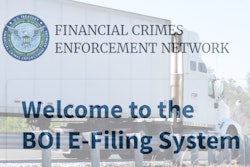A bill introduced in the U.S. Senate this week seeks to repeal heavy-duty emissions standards, eliminate new and existing emissions waivers granted to states, set a national standard for emissions and more.
The “Transportation Freedom Act,” as the legislation is known, was introduced by Sen. Bernie Moreno (R-Ohio) and co-sponsored by Sens. Tim Sheehy (R-Montana), Jim Banks (R-Indiana) and James Justice (R-West Virginia). It includes several provisions related to heavy-duty truck emissions standards, as well as provisions addressing light- and medium-duty vehicles.
Notably, the bill would repeal Phase 3 of the Environmental Protection Agency’s Greenhouse Gas Emissions Standards for Heavy-Duty Vehicles. The Phase 3 GHG rule, finalized last year, ramps up CO2 emissions standards for trucks between model years 2027 and 2032.
The Transportation Freedom Act would amend the Clean Air Act to eliminate vehicle emissions waivers, like those granted to California that allow for stricter emissions standards there and in other states who adopt them. The bill would bar any further waivers from being granted that differ from the emissions standard established by the bill. It also calls for the revocation of existing waivers that have already been granted by EPA, “including any waiver issued … to the State of California for zero-emission vehicle mandates.” This would seem to include CARB's Truck and Bus Regulation, which bars pre-2010 diesel engines from operating in the state, the more recently-approved Advanced Clean Trucks and Omnibus NOx rules, and more.
In addition, the legislation would repeal Section 177 of the Clean Air Act, which allows other states to adopt California’s motor vehicle emission standards.
[Related: Trump EPA orders review of California emissions waivers]
The bill would require the EPA to publish new GHG emissions standards for heavy-duty trucks to replace Phase 3 beginning no earlier than model year 2027. Until that rule is finalized, the Phase 2 GHG standards would serve as the interim emission standards for heavy-duty trucks. The bill requires that the new standards:
- Reflect achievable technological advancements based on market readiness and affordability
- Be based on evidence from industry capacity, historical market adoption data, technological advancements, and independent expert assessments to determine feasibility and economic impact, including on motor vehicle manufacturing job quality and stability
In establishing the new standards, the EPA is directed to, after adequate notice, “consult with manufacturers, automotive dealers, end users, energy producers, consumer groups, and other relevant stakeholders.”
[Related: What does the demise of ACF mean for EVs, ICE sales, and ratio-ing?]
American Trucking Associations President and CEO Chris Spear said the legislation “would restore commonsense at EPA and put an end to states like California creating a patchwork of unachievable timelines and targets.” He also noted that “sixty trucks today emit the same amount as one truck manufactured in 1988. The trucking industry has proven our commitment to reducing our environmental footprint, but in recent years, some regulators have turned their backs on the collaborative model that made this monumental progress possible.”
ATA highlighted the fact that the “trucking industry supported the Environmental Protection Agency’s Phase 1 and Phase 2 greenhouse gas regulations and worked collaboratively with the agency to set aggressive but achievable emission reduction goals on reasonable timelines.” Phase 3, however, the organization noted, “marked a sharp departure from this successful partnership, setting unrealistic adoption rates for battery-electric trucks. Waivers EPA granted to California for its onerous Advanced Clean Trucks and Omnibus NOx rules added further complexity and set the trucking industry up for failure.”
A spokesperson with the Owner-Operator Independent Drivers Association said the organization "believes that all environmental regulations must only be implemented in a reliable and affordable manner that does not price our members out of the industry," which "has hardly been the case in recent years. ... Various top-down emissions regulations and mandates have neglected the contributions of safe, experienced owner-operators and have not accurately estimated or properly considered the economic and operational impacts on small trucking businesses."
OOIDA added that it welcomes "efforts in Congress and at the EPA to roll back unworkable environmental regulations and restore common sense.”
Beyond the heavy-duty-truck-related provisions in the legislation, the Transportation Freedom Act would also:
- Provide a 200% tax deduction for American auto workers
- Repeal the Multi-Pollutant Emissions Standards for Model Years 2027 and Later Light-Duty and Medium-Duty Vehicles
- Repeal the National Highway Traffic Safety Administration’s “Corporate Average Fuel Economy (CAFE) Standards”
- Establish new GHG emissions and CAFE standards for passenger automobiles for model years 2027 through 2035
The introduction of the legislation follows the EPA's announcement last week that it is sending two truck-related waivers for California regs that were approved by the Biden Administration to Congress for review: California’s Advanced Clean Trucks (ACT) and Omnibus NOx rules, in addition to its Advanced Clean Cars II rule.
[Related: Trucking welcomes Trump's 'common sense' pick to lead EPA]












